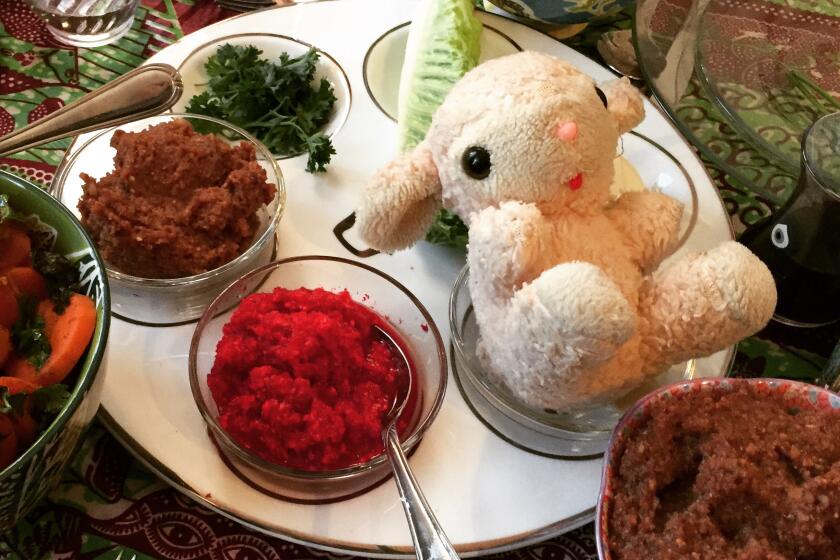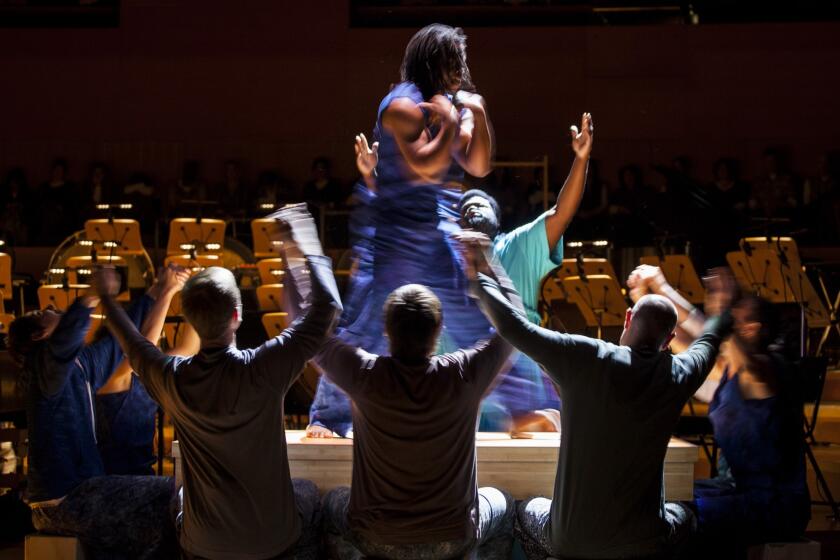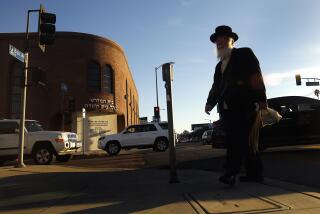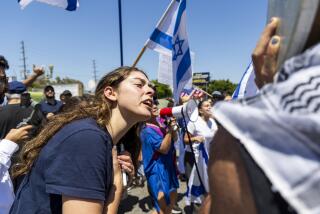Worried about coronavirus isolation during Passover, L.A.’s Jews find ways to connect
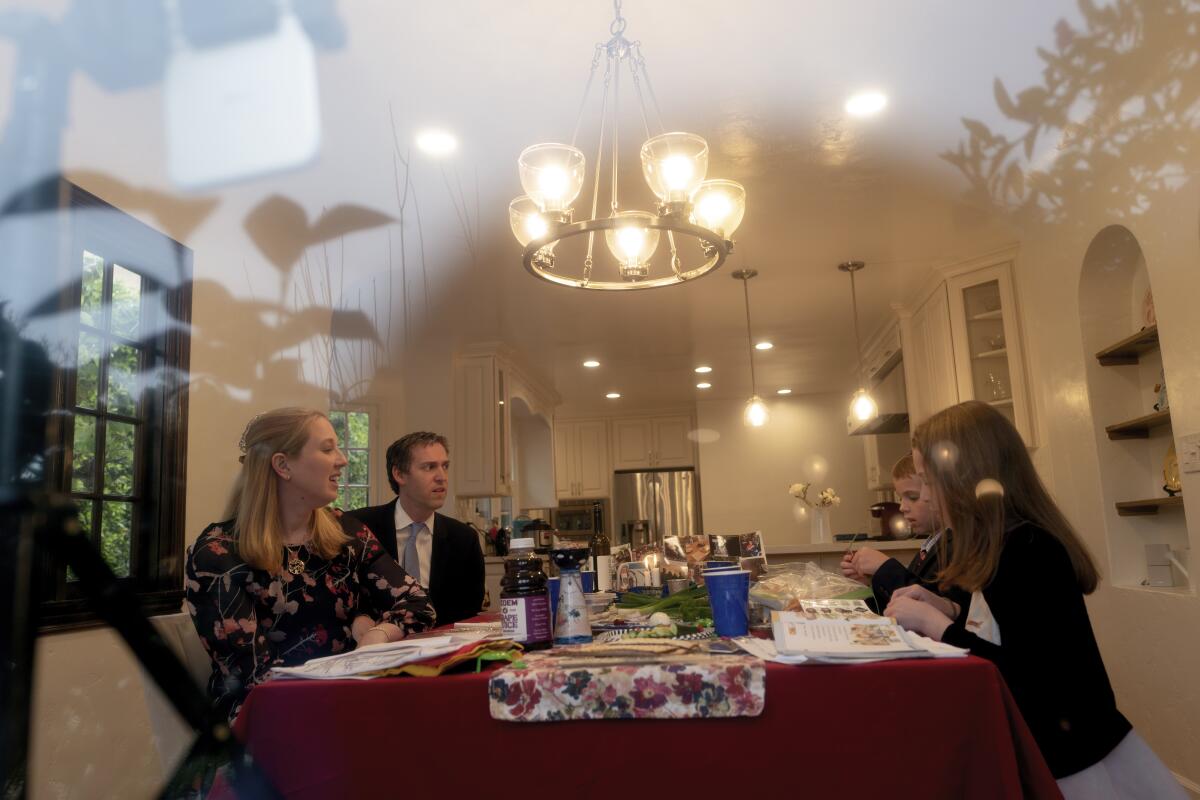
Erez Sherman and Nicole Guzik decided to place their iPhones by the window sill, where the cameras would overlook their family of five seated at the dining room table. The couple, both rabbis at Sinai Temple in Westwood, expected dozens of virtual guests at their first Passover Seder.
Their 8-year-old daughter had written a play and their 6-year-old son would make an appearance as Elijah the Prophet. They planned on incorporating the Sephardic Jewish traditions of other community members, like tapping Seder-mates with scallions to emulate the lashes from Egyptian slave drivers.
While coronavirus social distancing mandates will separate families when Passover begins Wednesday evening, many in Los Angeles have found a way to connect with their community as they read the Haggadah, the Seder guide, and recount the story of how God freed the Jews from slavery in Egypt.
“It’s every generation’s responsibility to tell the story, so we can’t give up now,” said Sherman. “We should be telling it even stronger, with more intensity and more faith than ever.… It’s the story of our people.”
As rabbinic authorities have urged households to maintain social distancing, the community has rushed to help those who will be observing the holiday alone or without their families. Rabbis have taught virtual classes for those who will lead a Seder for the first time. The Rabbinical Assembly, which represents Judaism’s Conservative movement, issued guidance to permit virtual Seders. Some senior Orthodox rabbis also approved video conferencing to unite separated families — a controversial decision opposed by other leaders in the movement.
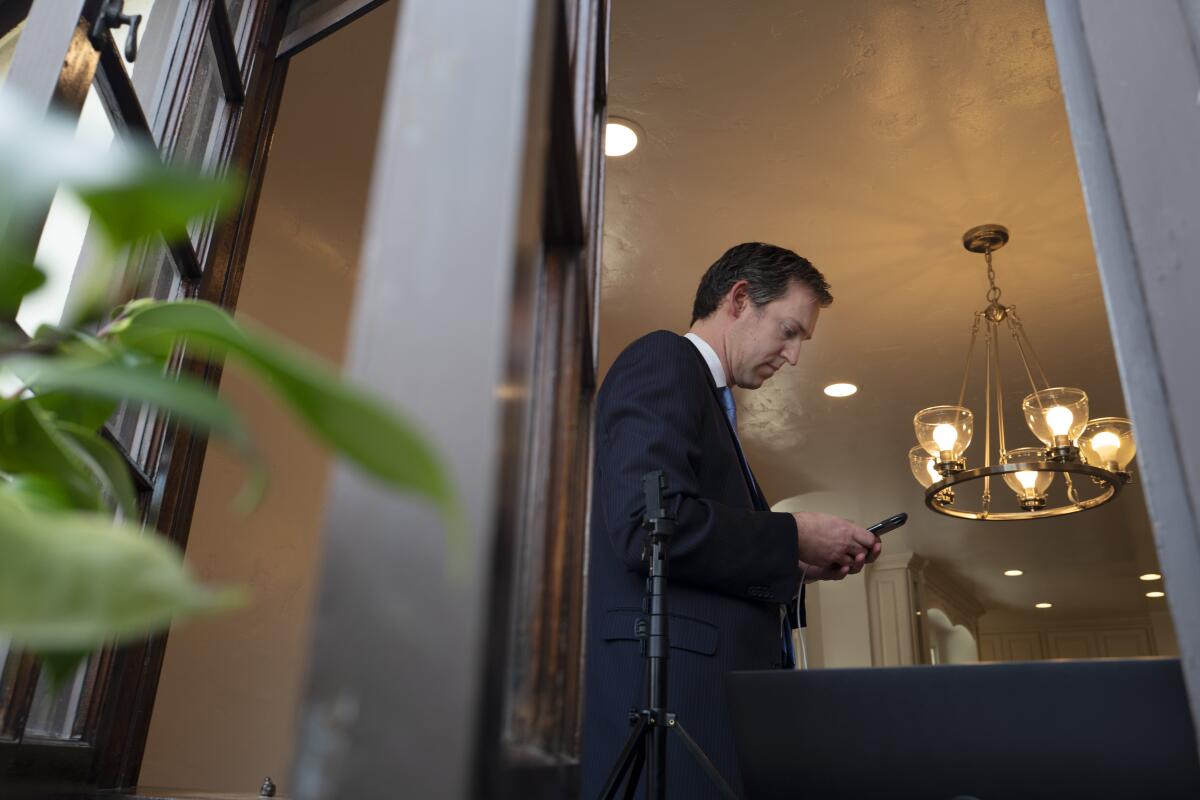
Many have found deep meaning in the holiday this year. During the pandemic, Passover’s theme of moving from a time of darkness to light offers a powerful message of hope and redemption, as well as a reminder of the struggles overcome by previous generations.
“That’s why this story was told in the Warsaw Ghetto when Jews were to be deported to the camps and why in Bergen-Belsen they told this story in the slave labor camps at night,” said Rabbi Sharon Brous of IKAR. “Throughout history, wherever Jews have been, this story has held such profound resonance. It says our story doesn’t end in darkness, but there will be another chapter, and we just have to live through this period to get there.”
Rabbi Elazar Muskin of Young Israel of Century City, who has stayed up late for days answering questions from those preparing for Passover in their own home for the first time in years, said that living through a pandemic has been a humbling experience that has made him more keenly aware that God is in control.
For millions of Jews, Passover is the highlight of the religious year. But what do you do when the coronavirus pandemic makes it impossible to congregate?
“The Passover holiday is all about God’s presence in the world,” he said. “The message is God’s hand in our lives. He freed us from Egypt, and we’ll get through this as well.”
During Passover, Jews abstain from eating chametz, or leavened food. Rabbi Chaim Tureff of Pressman Academy in Pico-Robertson said that families are now acting under other constraints as well by social distancing. The important thing, he said, is to learn from the experience, perhaps by reflecting on relationships with family members.
“It’s a wasted opportunity and a wasted moment in time if we don’t allow ourselves take this forced exodus and we don’t grow from it,” he said.
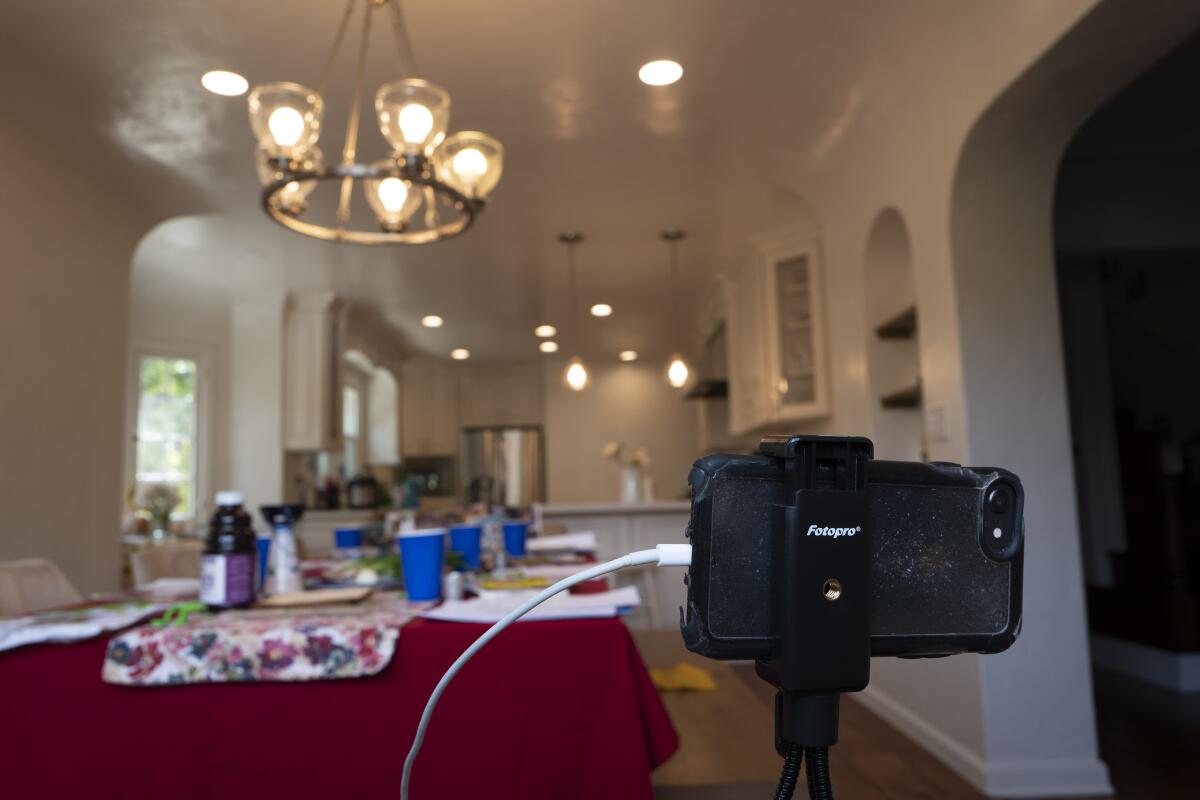
Virtual Seders will connect people to others at a time they have to be physically separated from their families. The Jewish Federation of Greater Los Angeles’ NuRoots initiative, which aims to engage young adults, created a website with resources on experiencing Passover during the pandemic, including a list of local virtual seders.
From his home in the Hollywood area, NuRoots Senior Vice President Jason Leivenberg, 33, will attend virtual Seders with his family and his partner’s family. They plan on screen-sharing pages from the Haggadah and sharing passages that are meaningful to them.
“We’re trying to relay to our community that this is important to do, and while doing it over Zoom is not as ideal as an in-person gathering, we have a responsibility to almost document this,” he said. “We’re going to want to remember this next year and 100 years from now that this happened.”
Passover and Easter inspired some of the most spiritually profound music. Why it’s time to hear these works by Bach, Wagner, Schoenberg and Adams.
Many Orthodox Jews will opt to not join virtual Seders, which could mean spending the holiday in solitude. The Rabbinical Council of America, an Orthodox rabbinical organization, issued a notice warning that feelings of social isolation could increase over the days of the holiday where observant Jews don’t use phones or other forms of electronic communication, and instructed those who might be called by someone experiencing mental deterioration to leave their phones on. The value Judaism places on preserving life, it said, requires the community to act in ways otherwise prohibited.
“It’s not the typical thing to call a rabbi on a holiday, but if you feel you can’t manage or are scared, if you call, I will answer,” said Rabbi Jason Weiner of Knesset Israel synagogue in Pico-Robertson.
Rachel Olshin, a 24-year-old writer and part-time Hebrew teacher in Pico-Robertson, has always met Passover with great anticipation. She loves its focus on storytelling and would have spent it with her family in Teaneck, N.J., if not for the virus.
Now, she’ll be observing the first Seder with her roommate and the second one by herself.
“I’m not happy about it,” she said. “I miss my family, but with the numbers projecting and everything going on, this kind of seems like the least of our issues, spending Passover alone.”
Solitude makes celebrating difficult. Tonight won’t just be different from all other nights. It will be different from all other Passovers, ever.
She recalled the moment in the Passover story when the Jews marked their doors with blood from an animal sacrifice as a sign that God should pass over their homes when slaying the firstborns of the Egyptians. It was a time of uncertainty that also had a sense potential for what could follow, she said.
“That moment of trepidation and what will happen next that is what I’m definitely feeling these days,” she said. “I’m not going to rush it. I’ll see where the Haggadah takes me.”
More to Read
Sign up for Essential California
The most important California stories and recommendations in your inbox every morning.
You may occasionally receive promotional content from the Los Angeles Times.
